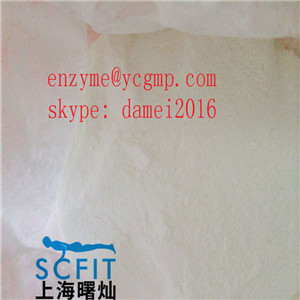| Message: | Product Name: Yohimbine hydrochloride
Synonyms: CORYNINE HYDROCHLORIDE; APHRODINE HYDROCHLORIDE; APHROSOL HYDROCHLORIDE; 17-HYDROXYYOHIMBAN-16-CARBOXYLIC ACID METHYL ESTER HYDROCHLORIDE; YOHIMBE HCl; YOHIMBINE HCl; YOHIMBINE HYDROCHLORIDE; Yohimbe Bark P. E; Plant extracts
CAS: 65-19-0
MF: C21H27ClN2O3
MW: 390.9
EINECS: 200-600-4
Apperance: White to slightly yellow powder
Usage: Indole alkaloid with α 2-adrenergic blocking activity. Mydriatic. Used in the treatment of neurological disorders.
Indications and Uses
Yohimbine hydrochloride is indicated as a sympathicolytic and mydriatic. It may have activity as an aphrodisiac.
Impotence (not able to have erections)
The way yohimbine works is not known for sure. It is thought, however, to work by increasing the body's production of certain chemicals that help produce erections. It does not work in all men who are impotent.
New research that shows it could be an herb with very effective antioxidant potential. Research shows it is a vasodilator, which means that it increases blood flow to the extremities and appendages.
Safety Concerns
Patients sensitive to rauwolfia alkaloids such as deserpidine, rauwolfia serpentina, or reserpine may also be sensitive to yohimbine.
Yohimbine readily penetrates the (CNS) and produces a complex pattern of responses in lower doses than those required to produce peripheral alpha-adrenergic blockade. These include, anti-diuresis, a general picture of central excitation including elevation of blood pressure and heart rate, increased motor activity, nervousness, irritability and tremor. Sweating, nausea and vomiting are common after parenteral administration of the drug. Also, dizziness, headache skin flushing reported when used orally.
|
 my account
my account
 log out
log out
 my account
my account
 log out
log out
